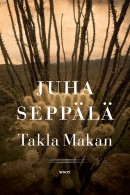Tag: novella
L’Amour à la Moulin Rouge
Extracts from the novella Yksin (‘Alone’, 1890). Introduction by Jyrki Nummi
After dining at the Duval on the Left Bank I take the same route back and drop in at the Café Régence to flick through the Finnish papers they have there.
I find my familiar café almost empty. The waiters are hanging about idly, and the billiard tables are quiet under their covers. The habitués are of course at home with their families. Anyone who has a friend or acquaintance is sharing their company this Christmas Eve. Only a few elderly gentlemen are seated there, reading papers and smoking pipes. Perhaps they’re foreigners, perhaps people for whom the café is their only home, as for me.
A little way off at the other end of the same table is a somewhat younger man. He was there when I came in. He’s finished his coffee and appears to be waiting. He’s restless and keeps consulting his watch. An agreed time has obviously passed. He calms himself and lights a cigarette. A moment later I can see a woman through the glass door. She’s hurrying across the street in front of a moving bus and running straight here. Now the man notices her too, and he cheers up and signals to the waiter for the bill. The woman slips through the door and goes straight across to him. They altercate for a moment, come to an understanding and depart hand in hand. More…
Juha Seppälä: Takla Makan
22 April 2010 | Mini reviews, Reviews
 Takla Makan
Takla Makan
Helsinki: WSOY, 2010. 149 p.
ISBN 978-951-0-36322-5
€ 27, hardback
Author Juha Seppälä’s manner of portraying the world is often characterised as harsh and desolate, and this certainly applies to this, his twentieth work. ‘Jesus’ mother was a woman,’ declares the first-person narrator in ‘Ristin tie’ (‘The path of Christ’) in the second novella in Takla Makan. This true but erotically charged statement sums up the themes of the two texts that make up the work. As the narrator of that story bears the cross in an Easter procession, issues of life and death, faith and worldliness, spirit and flesh, masculinity and femininity, are all present. The man carrying the cross, who has recently lost his job, has taken on a greater burden to bear. The other novella in this book, which takes its title from the name of a desert in China, tells of a terminally ill man who has withdrawn to a small rural community and lets his life slowly slip away. In Seppälä’s narratives anguished men are thrown into the world to ponder the big issues of life and death, expressing themselves with admirably precise sentences stripped of everything inessential.
